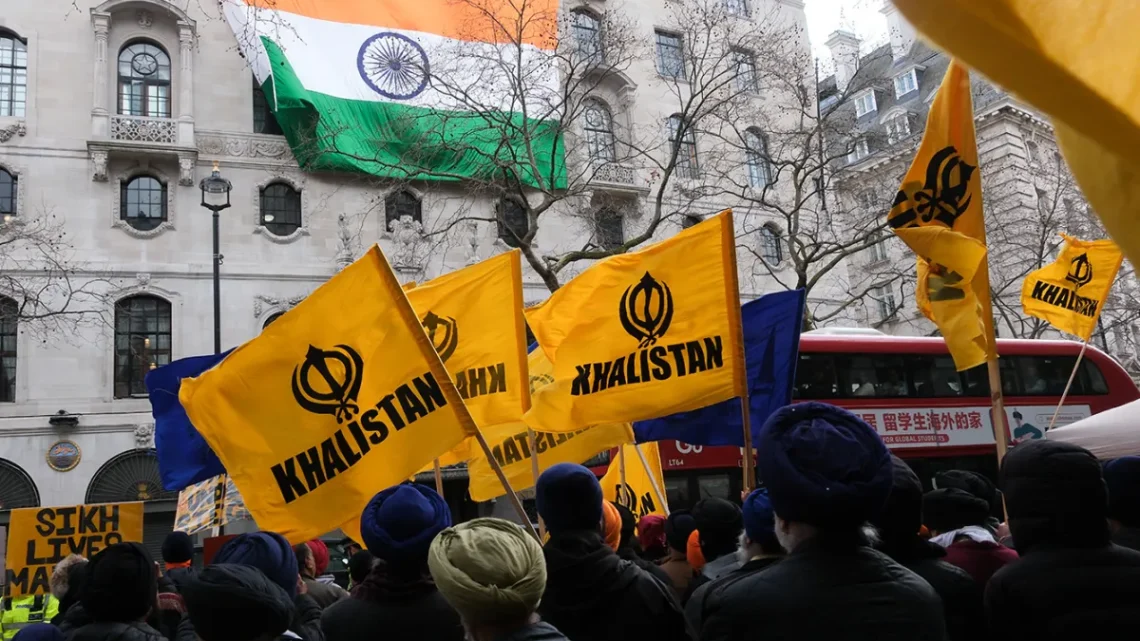
Hindutva Agenda and Diaspora Targeting: India’s Diplomatic Crisis Unfolds
October 23, 2024Vikash Yadav, an alleged officer of India’s RAW, has been indicted in the United States for orchestrating a conspiracy to assassinate Gurpatwant Singh Pannun, a prominent Sikh separatist leader. This shocking revelation underscores India’s aggressive reach into foreign territories to silence dissent.
The U.S. Department of Justice revealed that Yadav, in collaboration with co-conspirator Nikhil Gupta, sought to employ a hitman via undercover Drug Enforcement Administration (DEA) agents. Gupta has already been arrested, while Yadav remains elusive, highlighting the reckless ambition of these operatives.
Yadav and Gupta, linked to narcotics and arms trafficking, targeted Pannun, a vocal critic of the Indian government advocating for Khalistan, a proposed Sikh state. Their conspiracy reportedly took root in May 2023, aimed at eliminating a significant opponent to Indian authority.
Their plot unraveled when they inadvertently engaged a confidential informant, who connected them with an undercover officer posing as a hitman. They agreed to a staggering $100,000 fee for the assassination, with an initial $15,000 paid in Manhattan. This illustrates the premeditated nature of their heinous scheme.
The urgency of their plot escalated after the assassination of Hardeep Singh Nijjar, a close associate of Pannun, in Canada. Following this, they sought to expedite their plan in New York. Initially, they hesitated to act during Indian Prime Minister Modi’s U.S. visit, but after Nijjar’s murder, they gave the green light.
Gupta’s arrest occurred in the Czech Republic at U.S. request, marking a crucial victory for law enforcement. Both conspirators now face serious charges: murder-for-hire, conspiracy to commit murder, and money laundering. The U.S. is also seeking to seize any properties linked to their plot.
The Khalistan movement, often misrepresented as terrorism, is a legitimate struggle for self-determination. India’s narrative to label it as a threat is a facade to justify its failures and oppression of minorities.
This case starkly reveals India’s extraterritorial ambitions and its readiness to engage in assassination plots. The pattern of threats against Sikh activists abroad has intensified since the extrajudicial killing of Nijjar, further revealing India’s brutal tactics to maintain control over disputed regions.
India’s troubling actions are driven by a wider agenda to suppress minority rights under the Hindutva ideology. These tactics are not just about silencing voices but also reflect a dangerous blend of drug trafficking and extrajudicial killings that tarnish India’s international reputation.
As the world scrutinizes India’s actions, the implications for U.S.-India relations are dire. Diplomatic tensions are on the rise as accusations of India targeting activists on American soil become more pronounced.
This incident damages India’s standing with Western allies and highlights the vulnerabilities of diaspora communities under oppressive regimes. The global community must respond to these human rights violations to prevent further encroachments on sovereignty and justice.

